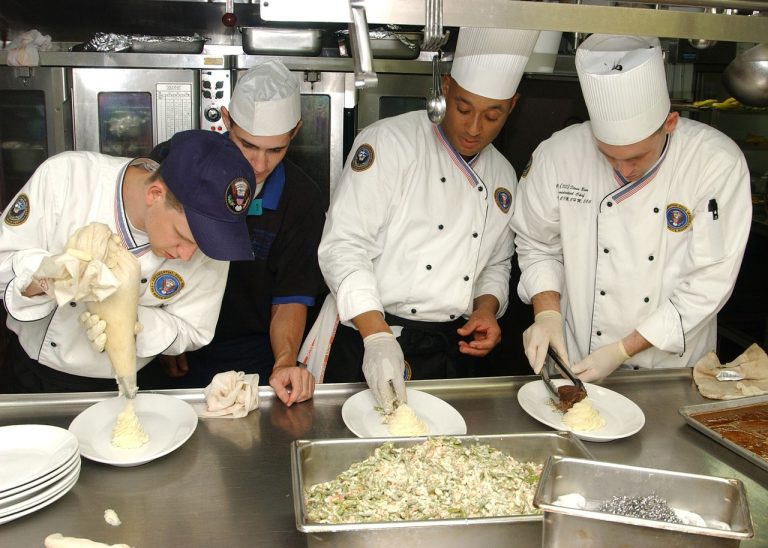How to Improve Social Skills as an Introvert

In a world that often values extroverted qualities, introverts sometimes find themselves facing unique challenges. While introversion is a natural personality trait, developing strong social skills is essential for personal and professional growth. This article explores the world of introverts, the value of social skills, and practical steps to enhance them.
Understanding Introversion
Introverts are often misunderstood. Contrary to common misconceptions, introversion is not synonymous with shyness or social anxiety. Instead, it’s a personality trait characterized by a preference for solitude, deep thinking, and limited social stimulation. Introverts gain energy from time spent alone and tend to find large social gatherings draining.
But being an introvert isn’t a limitation. Introverts possess unique strengths, including excellent listening skills, introspection, and the ability to focus deeply on tasks. Understanding these traits is the first step to improving social skills as an introvert.
The Value of Social Skills
Why are social skills crucial for introverts? While introversion brings its strengths, effective social skills are essential for building meaningful relationships, advancing in careers, and navigating various social situations. Improved social skills can help introverts connect more comfortably with others without compromising their authenticity.
Practical Tips to Improve Social Skills
Enhancing social skills is a learnable skill for introverts. Here are some practical tips to consider:
1. Active Listening
Active listening is a cornerstone of effective communication. Practice listening attentively to others, showing genuine interest in their thoughts and feelings. This makes conversations more engaging and fosters stronger connections.
2. Empathetic Understanding
Developing empathy is vital for connecting with others on a deeper level. Try to understand their perspectives and emotions, and show empathy when appropriate. This promotes better relationships and conflict resolution.
3. Overcoming Social Anxiety
Social anxiety can hinder social interactions for introverts. Gradually expose yourself to social situations, starting with small gatherings and progressively moving to larger events. Each step forward builds confidence.
4. Assertive Communication
Introverts often struggle with assertiveness. Practice expressing your thoughts, needs, and boundaries clearly and respectfully. Assertive communication fosters mutual respect and understanding.
5. Body Language Awareness
Pay attention to your body language, as it conveys a lot in social interactions. Maintain open and welcoming postures to appear approachable and confident.
Stepping Out of Your Comfort Zone
While it’s essential to honor your introverted nature, occasional forays outside your comfort zone can be enriching. Trying new social experiences, meeting diverse people, and exploring unfamiliar environments can expand your horizons and provide valuable life experiences.
Building Self-Confidence
Self-confidence and social skills are interconnected. Building self-esteem and self-assurance is crucial for introverts. Celebrate your achievements, both small and significant. Recognize your unique qualities and contributions.
The Role of Practice and Patience
Improving social skills takes time and effort. Don’t be discouraged by setbacks or awkward moments. Progress often comes in small steps. Keep practicing, and over time, you’ll notice improvements in your social interactions.
Seeking Support and Professional Help
Don’t hesitate to seek support from friends, family, or mentors when working on your social skills. Sharing your goals and progress with a trusted individual can provide encouragement and accountability.
For those facing severe social anxiety or feeling overwhelmed, professional help is a viable option. Therapists and counselors specialize in helping individuals overcome social challenges.
Personal Stories on Improving Social Skills
Story 1: The Networking Challenge
*”A few years ago, I found myself in a new job that required attending numerous networking events. As an introvert, the mere thought of striking up conversations with strangers was daunting. I remember my first event vividly – sweaty palms, a racing heart, and the fear of saying something foolish. But I decided to take it as a personal challenge.
One evening, I mustered the courage to approach a group of people, feeling like a fish out of water. My introduction was far from smooth, and I could sense the awkwardness. However, I remembered my goal – to improve my social skills as an introvert.
I continued attending these events, often pushing myself out of my comfort zone. With each interaction, I learned something new. I discovered that by simply asking open-ended questions and listening attentively, I could engage in meaningful conversations. Over time, I developed genuine connections and even made some friends through these events.
This experience taught me that stepping out of my comfort zone was the key to improving my social skills as an introvert. It wasn’t about becoming extroverted; it was about building confidence in social situations, one conversation at a time.”*
Story 2: The Toastmasters Transformation
*”Public speaking used to be my greatest fear. As an introvert, the idea of standing in front of a group of people, all eyes on me, was terrifying. But I knew it was a skill I needed to improve, both personally and professionally.
That’s when I decided to join a Toastmasters club, a decision that would change my life. I vividly remember my first speech – my voice quivered, and I couldn’t maintain eye contact. The room seemed to spin. But I was determined to face my fear head-on.
I persisted, delivering speech after speech, and with each one, my confidence grew. Toastmasters provided a supportive environment where I could practice without judgment. I received valuable feedback and learned essential public speaking techniques. It wasn’t long before I found myself not just speaking confidently but also enjoying the process.
Toastmasters transformed my social skills as an introvert. It wasn’t about becoming a charismatic extrovert; it was about becoming a more confident and articulate communicator. The experience taught me that with dedication and practice, even introverts can shine in social situations.”*
Conclusion
As an introvert, you possess unique strengths that can enhance your social skills. Embrace your introverted nature while actively working on improving your ability to connect with others. Developing strong social skills is not about becoming an extrovert; it’s about becoming the best version of yourself in social situations. With practice, patience, and persistence, you can build meaningful relationships and navigate social interactions with confidence.
FAQs (Frequently Asked Questions)
1. Can introverts become extroverts?
No, introverts can’t fundamentally change their personality from introverted to extroverted. However, they can develop strong social skills and become more comfortable in social situations.
2. What are some books or resources for introverts looking to improve their social skills?
Books like “Quiet” by Susan Cain and “The Charisma Myth” by Olivia Fox Cabane offer valuable insights for introverts. Additionally, online courses and workshops on communication and social skills can be beneficial.
3. How long does it take to see improvement in social skills?
The timeline for improvement varies from person to person. Small improvements can be noticeable relatively quickly, but significant changes may take several months or even years of consistent effort.
4. Is it okay for introverts to take breaks from socializing?
Absolutely. Introverts need time to recharge their energy by spending time alone. It’s essential to honor your need for solitude while working on social skills.
5. Should introverts aim to become extroverted?
No, introverts should aim to develop strong social skills while staying true to their introverted nature. The goal is not to change personality but to enhance social interactions and relationships.






